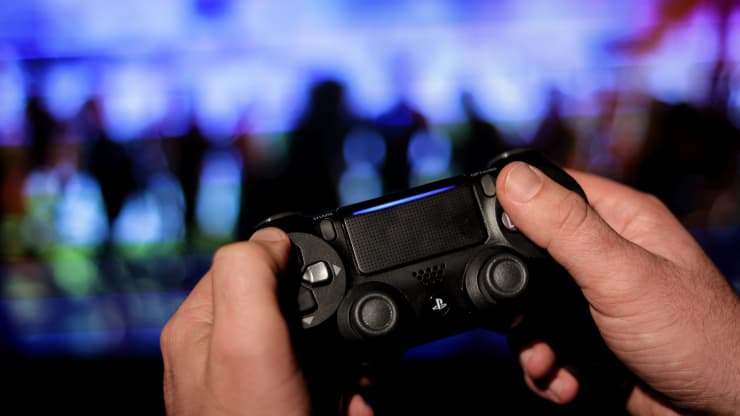In 2017, for instance, Electronic Arts confronted tremendous reaction over a choice to give players pay to open specific characters access its “Star Wars Battlefront II” game. Generally, players are needed to work for a long time to access such substance.
The objection was extremely extraordinary that EA at last strolled back its arrangements, which pundits depicted as a “pay-to-win” model.

So when Ubisoft, the French computer game distributer, dropped a video this month flaunting its introduction to non-fungible tokens, any reasonable person would agree the response was somewhat unsurprising.
The organization appeared a stage called Quartz which allows players to claim in-game things, for example, protective caps as NFTs, advanced resources intended to follow responsibility for things on the blockchain. The element was added to Ubisoft’s “Apparition Recon Breakpoint” game.
The move was met with boundless displeasure from gamers, who hammered Quartz as a money snatch. Some analysts likewise raised worries with the ecological effect of digital currencies.
OperatorDrewski, a YouTube channel with north of 1 million endorsers, remarked: “As far as I might be concerned, this is an explicit sign that you’re simply draining the Ghost Recon establishment for in a real sense each penny while investing insignificant energy into the real game itself.”
In spite of the fact that YouTube has as of late secret aversions on its recordings, clients downloading programming to get around the change had the option to observe Ubisoft’s trailer for Quartz has been predominantly loathed, with just 1,600 preferences and in excess of 40,000 abhorrences.
A Ubisoft representative told CNBC the NFTs accessible on Quartz are at present free, and that the organization isn’t taking a cut of any optional market deals.
“Ubisoft Quartz is an examination,” the representative said.
“Digits,” Ubisoft’s NFTs, are “restorative, playable in-game things that no affect ongoing interaction,” the representative added. “In that sense, they are totally discretionary.”
Tending to ecological worries, Ubisoft said it is depending on a less energy-escalated cryptographic money network called Tezos.
Ubisoft isn’t the main gaming organization getting on board with the NFT fad.
EA CEO Andrew Wilson says the peculiarity is “a significant piece of things to come of our industry.” Ukrainian engineer GSC Game World needed to coordinate NFTs into its impending title “STALKER 2,” however has now rejected those plans following pushback from fans.
The business is isolated
The Ubisoft failure features division in the gaming scene over non-fungible tokens. Last month, for example, Microsoft Xbox boss Phil Spencer cautioned a few endeavors to carry NFTs to video games feel “exploitive.”
“There are certainly a few parts of [NFTs] that vibe a little exploitive right now with a portion of these games,” Geoff Keighley, host of The Game Awards, told CNBC on a call in front of the computer game industry’s yearly honors service, which as of late occurred.
While Keighley says he loves game makers making income through sovereignties on NFT deals, “what I trust doesn’t occur is that games become a stage only for business.”
“As far as I might be concerned, what I love about games is the universes, stories and encounters inside them,” he added. “What I don’t need is for things to feel value-based. It’s somewhat similar to microtransactions, when that was the large show for gamers.”
A few cryptographic money new companies are wagering NFTs will assume a part in the realm of computer games. Axie Infinity, for instance, is a blockchain-based game that allows clients to gather and raise animals called “Axies” — similar to “Pokémon” however with NFTs.
Why blockchain?
Robby Yung, CEO of Animoca Brands, a financial backer in Axie Infinity maker Sky Mavis, said the plan of action in gaming has changed throughout the long term.
“Gaming’s generally more exceptional, which means you purchased cartridges or DVDs or, later, downloadables. You addressed forthright costs for games,” he said.
“That has changed to a great extent to a financial model around allowed to-play. The thought is that it’s free forthright however you have virtual resources inside the game that you procure to upgrade and work on your interactivity.”
Yung says the NFT approach is inventive as it implies gamers would now be able to take responsibility for properties they purchase inside a game. Players would then be able to take those resources outside of the game and trade it somewhere else. He said the peculiarity helps him to remember his adolescence.
“Assuming you purchased cartridges for your games control center and you needed the upgraded one yet couldn’t manage the cost of it, you would sell a portion of your old games at a recycled shop,” Yung said.
“These days with advanced substance we’ve not had that recycled market. Thus now blockchain is empowering that to happen once more, where you can discard content that you are not generally keen on or are not playing with any longer.”
All things considered, notwithstanding fervor from some over NFTs and their possible use in gaming, unmistakably not every person is ready.
While NFTs may one day have a spot in computer games, the present moment they’re as yet in an “undeveloped stage,” as per George Jijiashvili, head expert at Omdia.
Also Read: Back 4 Blood is Best Co-op Game 2021




















Leave a Reply